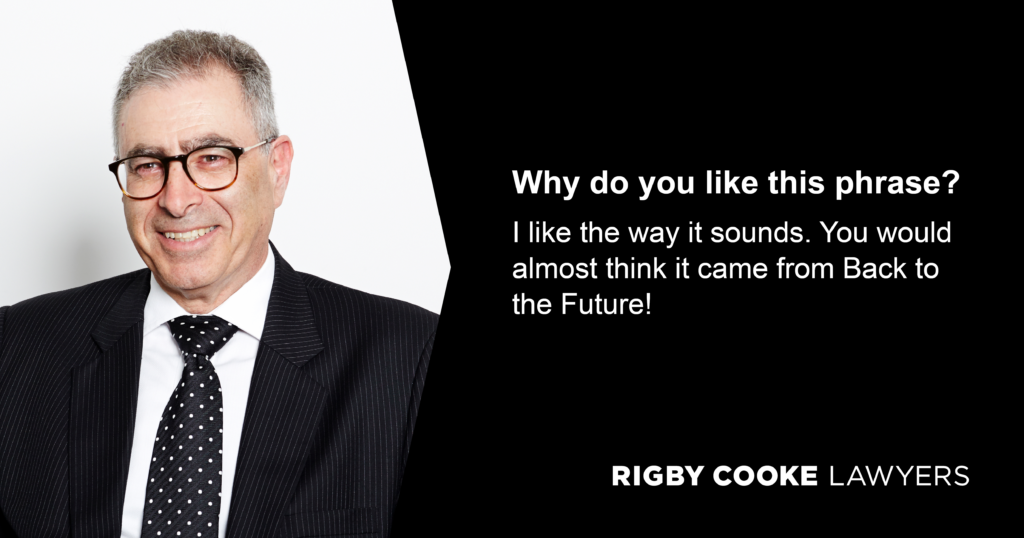Have you ever read something and thought, “I’m not sure what that means” or “is that really correct”? Welcome to our series of quickfire interviews that attempt to unravel those interesting words and phrases.
In this edition, we speak to Workplace Relations Senior Consultant Sam Eichenbaum, who talks to us about the phrase he finds interesting, Effluxion of time.
What phrase have you chosen and what does it mean?
Effluxion of time. It means that the time for something has run out.
Why do you like this phrase?
I like the way it sounds. You would almost think it came from Back to the Future!
What’s been the most interesting use of this phrase you have come across and when did you first come across it in a legal context?
It has been used often in unfair dismissal cases where the person was employed on a contract that had an end date, and the employment ended at the specified end date. That led to the question: did the employer terminate the employment or did it just come to an end by the effluxion of time? If the contract ended by the effluxion of time then there wasn’t a termination at the initiative of the employer because it was something that had been agreed upon when the contract was formed. And if there wasn’t a termination at the initiative of the employer then the employee wasn’t dismissed, unfairly or otherwise.
My favourite case in which the concept arose is Andersen v Umbakumba Community Council, just because I like the sound of the employer’s name (although I don’t think the phrase was actually used in that decision).

